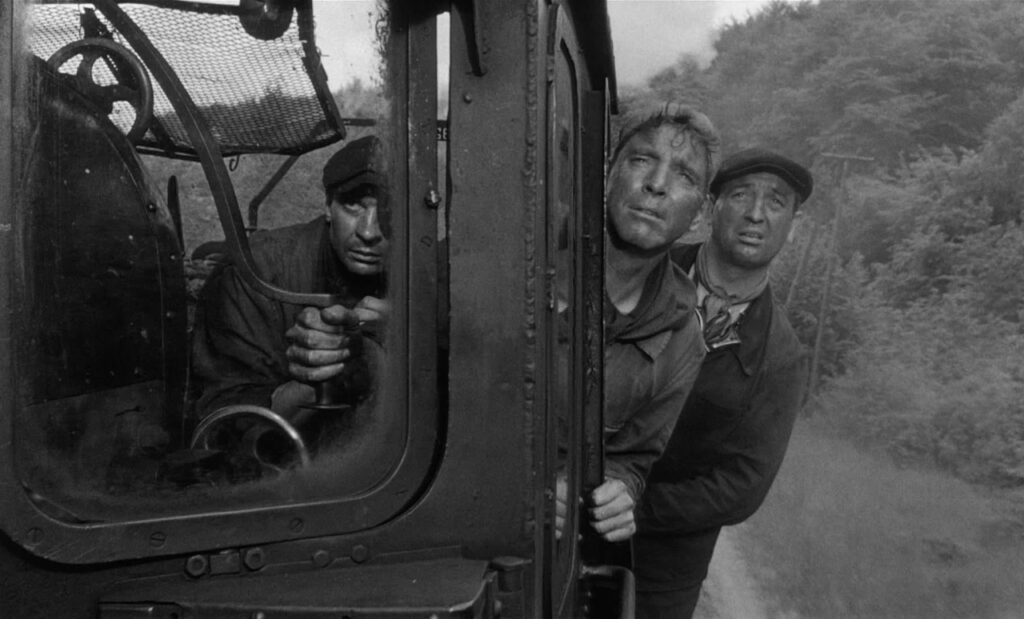Because The Train is being made available again, but in a new 4K scan from Kino-Lorber, I thought I’d brush off this piece from 2012.

In 1963 John Frankenheimer took over the responsibilities of director on The Train (1964) from Arthur Penn at the insistence of the film’s star Burt Lancaster. The Train is not the typical WWII espionage thriller one expects of Hollywood in the early sixties. Frankenheimer emphasizes the personal struggles and ambitions of the film’s characters as well as the action, creating a tableaux as close to organic as the script allows, often recalling Clouzot’s The Wages Of Fear (1953).
The film begins with Colonel von Waldheim (Paul Scofield) emptying the Louvre; loading its classic works of art onto a train, and setting out for Berlin. Railroad Inspector Labiche (Burt Lancaster) is persuaded by the French Resistance to stop the train. First, it’s simple sabotage, followed by marking the train for an Allied bombing, finally becoming a battle of wills between Waldheim and Labiche.
The plot doesn’t seem all too original today. But The Train manages to escape being dated. In part, because of the high contrast black and white cinematography of Jean Tournier and Walter Wottitz, which lends to the film the legitimacy and urgency of a documentary. Mostly it’s because of Frankenheimer’s resolve as a filmmaker. Frankenheimer insisted that real French railways and trains be used in the film. For the train wrecks, actual trains were derailed and photographed by multiple cameras. Even Lancaster took the realism to extreme lengths, performing all of his own stunts, and learning the trade of his character. Due to Lancaster’s commitment, Frankenheimer was able to pepper the film with shots of Lancaster actually working on the trains, heightening the believability of Labiche and persuading the audience to invest heavily in the world of the film.
French actors Jeanne Moreau and Michel Simon, among others, were cast in supporting roles to reinforce the authenticity of the film. Though Lancaster, playing a Frenchman, acts without an accent, his commanding screen presence carries him over the obstacle of playing alongside such distinguished French talent. But the French players were not wasted on simply constructing the environment of the film. Frankenheimer expanded small walk on roles by collaborating with the actors.
The Train was not, however, without its production difficulties. Lancaster hurt his leg golfing with Frankenheimer midway through production. Lancaster developed a temporary limp which Frankenheimer had to explain in the context of the film so that Lancaster could carry on doing his own stunts. So a scene was invented where a Nazi shoots Labiche in the leg after a failed attempt to derail the train.
Of the five films Frankenheimer made with Lancaster this one is certainly the best, though the competition is more than impressive (The Young Savages, Birdman Of Alcatraz, Seven Days In May, and The Gypsy Moths). It’s a classic worth seeing for its innovative cinematic style and the contributions it made to the war film genre.
